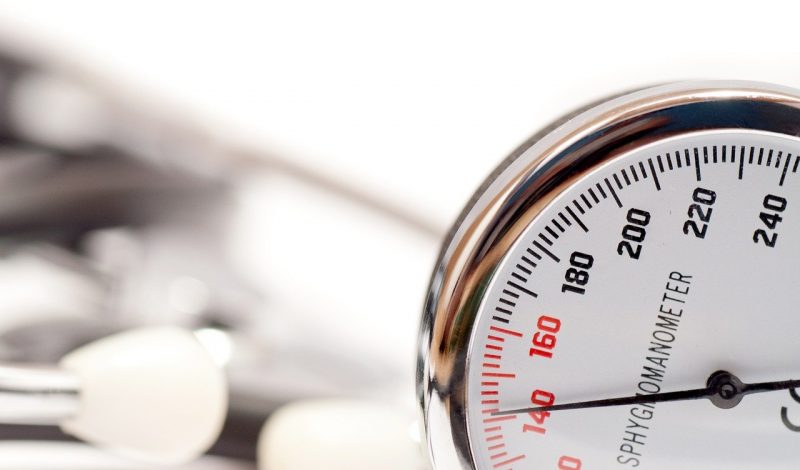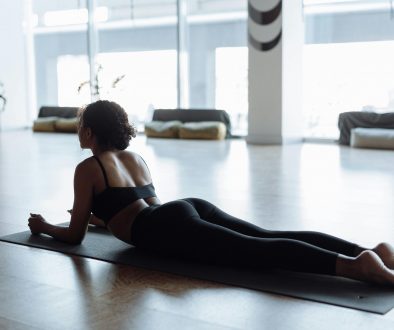Blood Pressure Health
High blood pressure is all too common these days. There are lots of things you can do yourself to help keep your blood pressure in check. Before we get into how to look after your blood pressure, let’s talk about what blood pressure is and why it is vital to maintaining good health.
Blood Pressure
So what is blood pressure and what do those numbers actually mean? Your blood pressure is the measurement of the force with which blood is being pumped out of your heart to go around your body. If you have ever had your blood pressure taken, you will know it comes with two numbers (sometimes three numbers if it has been taken on a blood pressure machine). The numbers given show your systolic pressure, your diastolic pressure and possibly your heart rate as the additional number. The systolic number is usually the first or top reading (usually the higher number) whilst your diastolic number is the second number and typically the lower number.
The blood pressure numbers are measured in millimetres of mercury (mmHg). Your systolic pressure is the force the heart uses to push the blood out of the heart. Your diastolic pressure is the pressure when your heart is resting between beats. Your heart rate is the number of times your heart beats within a minute. According to the British Heart Foundation, the average resting heart rate is between 60-100 beats per minute. For athletes and the younger population it is common for the heart rate to be below 60 beats per minute. When this occurs, this is called bradycardia (slow heart rate). The opposite would be tachycardia (fast heart rate). According to the NHS website one in three adults in the UK suffer from high blood pressure (over 140/90 mmHg). Most of the time high blood pressure, or hypertension as it’s otherwise known, does not have any obvious symptoms. It is suggested that you get your blood pressure checked regularly by a health professional to confirm the level of your blood pressure. Most people assume that high blood pressure only affects the older population e.g. the over 40’s, but it is becoming more apparent that younger people are going undiagnosed with high blood pressure or prehypertension (raised blood pressure). According to Harvard Medical School, young adults with above normal blood pressure are more likely to suffer with heart problems when they become middle-aged.
What can cause your blood pressure to rise? There are a few different reasons why our blood pressure increases, some are naturally occurring, others are due to lifestyle factors. Short term high blood pressure whilst performing sport or exercising is actually a healthy occurrence. Your body naturally increases its blood pressure to allow you to physically work harder. Once you stop exercising and start to relax your blood pressure should return back to a normal healthy resting state. This phenomenon occurs when you stimulate the sympathetic nervous system.
The sympathetic nervous system is part of the autonomic nervous system, which means you are not conscious of its actions because they occur automatically, as the name suggests. During what has been termed “flight or fight” mode your body stimulates this sympathetic response (increased heart rate) which gets your body ready for the action response that is required e.g. running (in a competition or away from something). During the sympathetic response you will experience an increase in heart rate and blood pressure as well as a release of adrenaline, if the situation lasts long enough. Now you are probably thinking why is this important to my blood pressure? Well, the sympathetic response also links into the next section about lifestyle factors which increase your blood pressure, specifically stress. Stress – we have all experienced stress at some point in our lives. Whether it is physical or emotional stress, either one can increase your blood pressure if this occurs for long periods of time.
How to reduce your blood pressure?
If you do have high blood pressure, what can you do about it? There a several ways to approach reducing or controlling your blood pressure. First of all, if you have high blood pressure you should always talk to your GP about your options. Most likely you will discuss pharmaceutical options if appropriate. There are also lifestyle factors that you can change. Increasing your level of exercise is a simple way of improving your blood pressure. However, make sure you speak to a health professional first: in most cases it is fine to start exercise but if your blood pressure is too high then this may not be a good option for you. If you are deemed safe to exercise, regular walking can be a great start. If you do want to start going to the gym, it is best to speak to a health professional or a qualified trainer to make sure the exercise is appropriate for you. In terms of diet and nutrition, cutting down on salt can also help reduce your blood pressure. Regular exercise, meditation and breathing techniques can be used to help manage psychological stress. Another way to help reduce your blood pressure is by cutting down how much caffeine you consume, that is, how many teas and coffee you drink per day. If you are having over 4 cups a day it might worth reducing your
intake.
If you would like to know more information about blood pressure, please speak to your GP or a qualified health professional. You can also look online at the NHS website for further advice.
https://www.nhs.uk/conditions/high-blood-pressure-hypertension/
https://www.nhs.uk/common-health-questions/lifestyle/what-is-blood-pressure/
https://www.sciencedaily.com/terms/sympathetic_nervous_system.htm
http://www.bloodpressureuk.org/BloodPressureandyou/Yourlifestyle/Beingactive
Links
https://www.instagram.com/skelian_chiropractic/
https://www.facebook.com/skelianclinic/
https://www.youtube.com/channel/UCCJ9BXYUAAfOie7zTUUeIKA/videos



